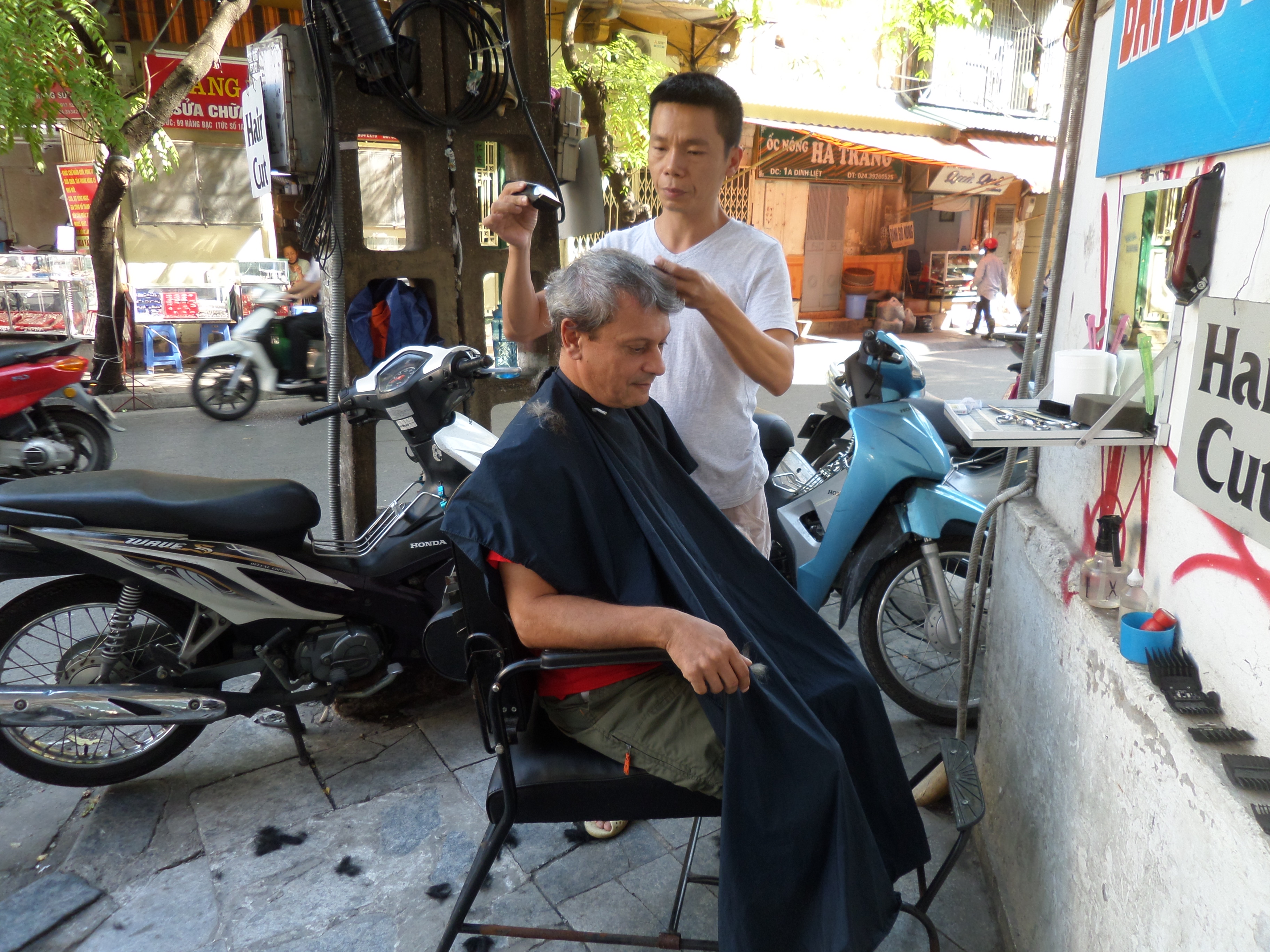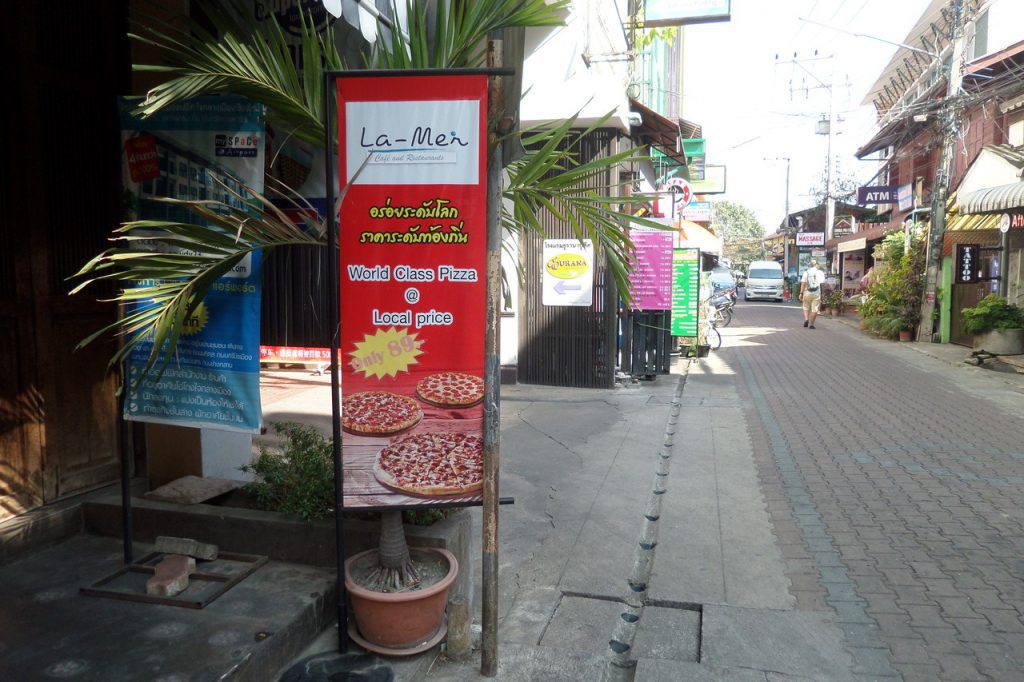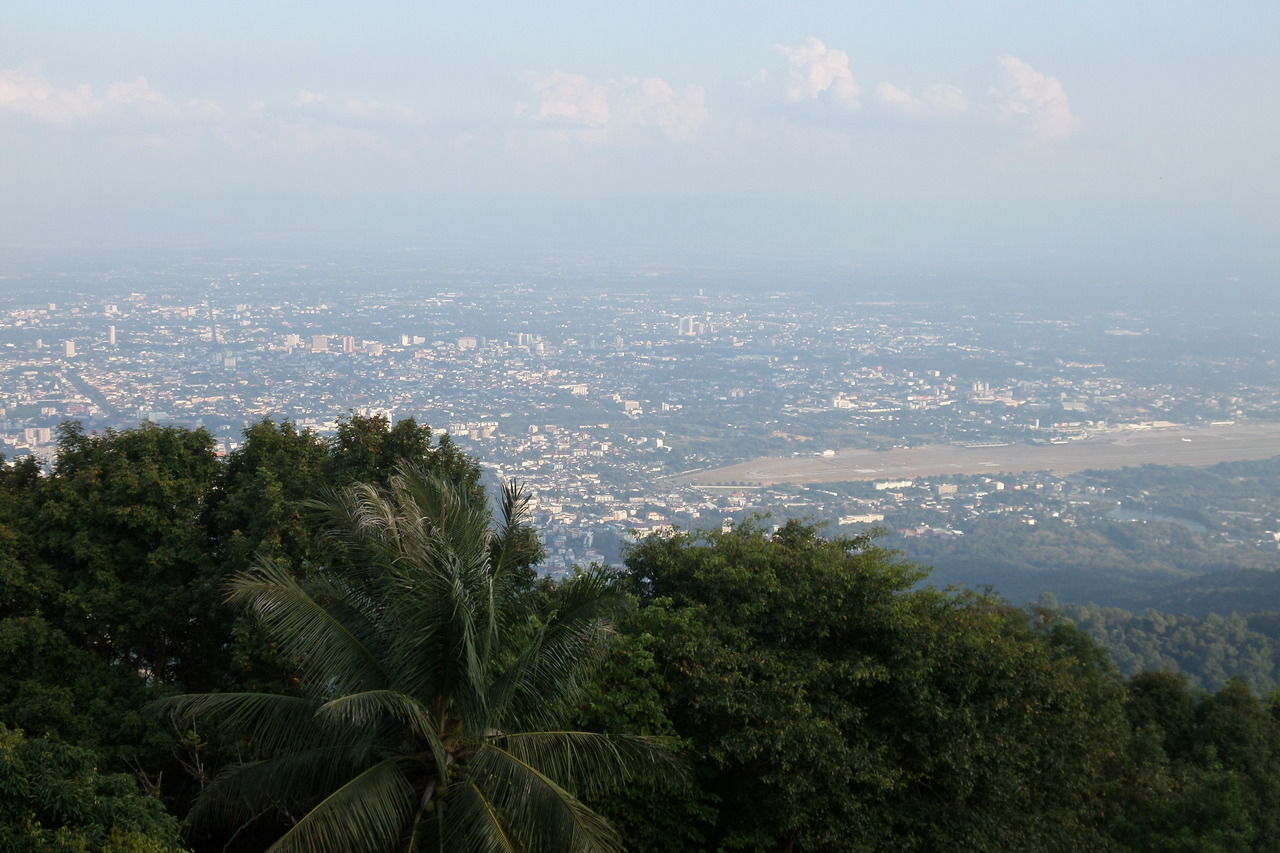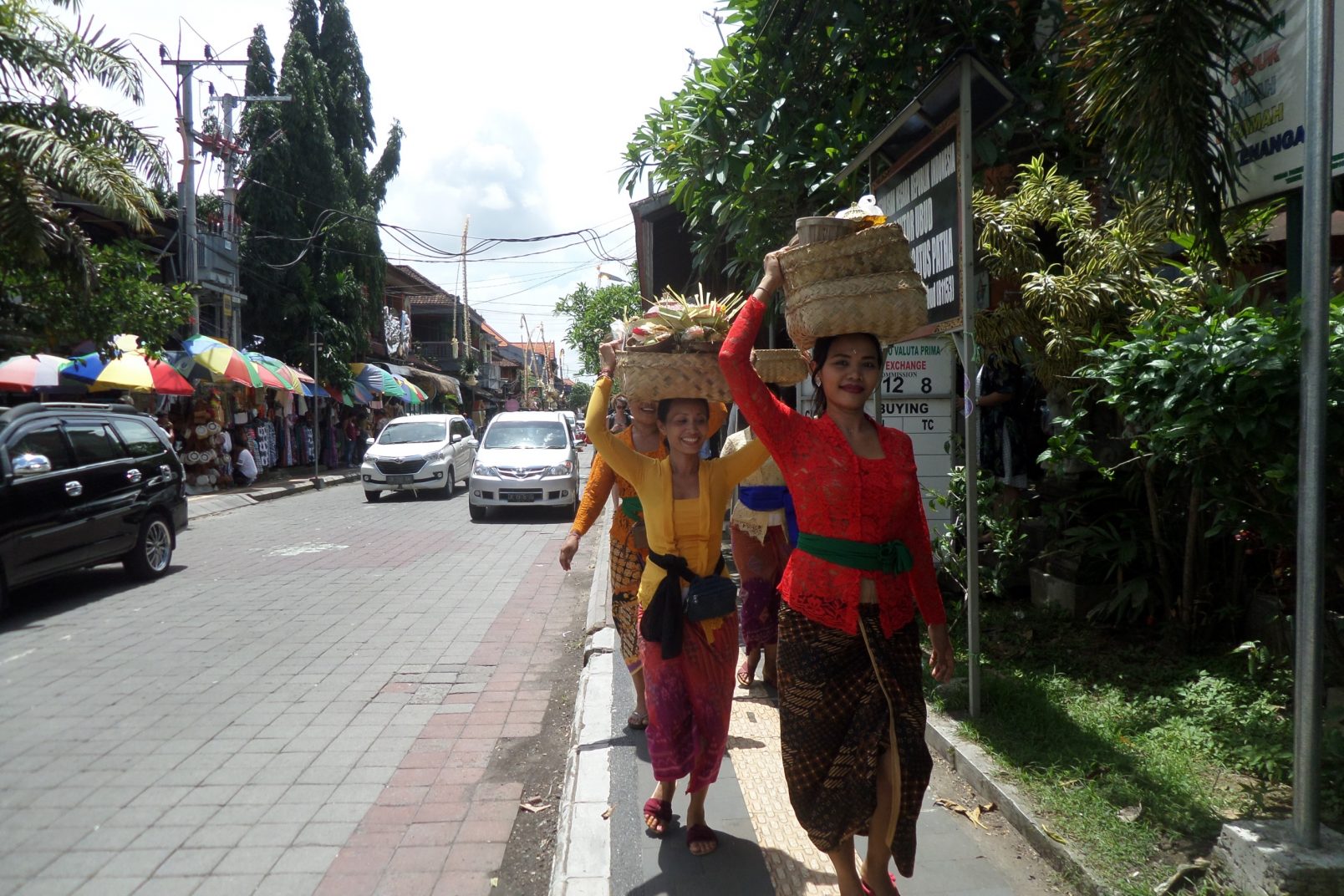This photo was taken in Hanoi, Vietnam, where there are a lot of street hairdressers, and I was happy to need a haircut just when I was in the city for a month.

I already had some local friends, and one of them took me to this street corner (on her motorbike, of course), asked the guy if he was free (he was just dealing with another customer when we arrived), and left. The hairdresser asked me how much I would pay for a haircut at home, and I quoted less than half of the price I usually pay at home, and added that we have no street hairdressers, so this is the price I would pay in a nice place in the city centre. Nevertheless, he charged me exactly the amount I said to him (and he seemed very satisfied). When my friend asked me how much I had paid, and I told her it was 80.000 dongs, all she said was: the bastard!
Of course, it was a tourist price, local people pay at most half of this. But then, he must have realized that I didn’t choose him because I wanted to save money, and even not necessarily because I badly needed a haircut, but for the sake of the experience. And then there you are: a haircut may be very cheap, but a photo opportunity at a street hairdresser’s, and the adventure you can then boast about to your friends and post images on your blog, well that is an entirely different matter.
Very often, tourists are charged more for various products and services than local people are, and the difference is sometimes really significant. There are times, when this is entirely official, i.e. set by authorities of some sort, but most often this happens just because the local vendor thinks that you as a foreigner, especially a white or European one, can afford to pay much-much more than anyone they know. This may (or will) happen in markets, in shops, at the railway station, in small restaurants or anywhere else where there is no price list that you could consult before making a purchase.
Some people say you simply have to accept this and not worry too much about it, since you can hardly change it anyway. Others feel they are being taken advantage of and being treated unfairly, which is unacceptable for them. Whichever group you belong to, it is not only advisable but actually expected to haggle at places where it is customary: markets, street vendors, taxis, tuk-tuks and the like, and even in small shops (but see my post about haggling).
I myself belong to the second group though: I feel it is unfair to charge me double or triple the price they would charge a local customer, only because they think I am rich. Which I am, of course, not. This is why I try to save wherever I can, and never buy luxury products or services. But I am basically against every kind of discrimination, whether on the basis of skin colour or birth of place – these people, who charge tourists more use exactly these two, so how on earth is it different from racism? It is funny how sometimes local people themselves acknowledge the fact that they are using this discrimination. Look at this photo, for example. I took it in Chiang Mai in Thailand:

They want to attract tourists by saying that they will not be overcharged – naturally it is to be understood then, that everywhere else in town, you will be overcharged.
Even if you think that this tourist price phenomenon is understandable, I think you should think about it a little more. How would you feel if the same thing happened in European countries? Or here’s another argument: do you think it is fair and acceptable to charge different prices based on how the vendor happens to judge your financial situation on the basis of your skin colour/language/clothes etc? Then what about all those local people (and there must be millions of them), who are richer than me, beyond comparison?



